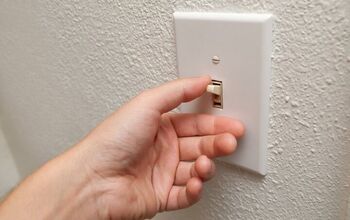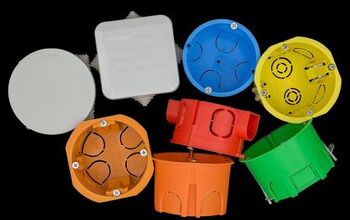Indoor Vs. Outdoor Tankless Water Heater: Which One is Better?

Your water heater is one of the most vital appliances in your home. When it is working functionally, you hardly take note of it. But when something breaks down, you can go without hot water and that can cause a huge disruption in your life.
You may make the decision to go with a tankless water heater for your next installation. But do you go with an indoor or outdoor tankless water heater? While an indoor water heater can improve the value of a new construction and is better for colder climates, it can be loud and needs venting. Outdoor tankless water heaters are easier to install but are generally more expensive.
Do You Need Tankless Water Heater Installation?
Get free, zero-commitment quotes from pro contractors near you.

What is a Tankless Water Heater?
What is the difference between the gas and electric water heaters that we traditionally know and tankless water heaters? Well, the tank is the dead giveaway. To put it simply the tankless water heater doesn’t need one.
For tanked water heaters, water is stored within the tank and heated up for distribution. Tankless water heaters, however, don’t store water. Instead, they super heat the water the moment it is needed, so hot water comes out almost instantly.
Indoor vs. Outdoor Tankless Water Heater
When it comes to choosing a tankless water heater, the first and most foremost of choices is gas versus electric. But after that, the question becomes: indoor or outdoor tankless water heater?
Let’s take a look at the pros and cons of both before coming to a decision on which one may be a better fit.
Pros of Indoor Tankless Water Heater
First, the pros of indoor tankless water heaters. These are generally more common in colder regions (more on that in a minute). The good news for tankless water heaters that have to be installed indoors is that they are much more space effective than their tanked counterparts. No matter which option you go with, you can ensure that you are saving quite a bit of space versus traditional tanked water heaters.
Ideal for Windy, Cold Climates
If you live in a climate that features below-freezing temperatures for at least a couple of months per year, then an indoor tankless water heater is the best option. There is less risk of freezing damage to the unit.
Also, you might need a lot less insulation or wrap near the exterior of the plumbing. Even better, you don’t need further maintenance to keep the water heater protected. Basically, any conditions that could damage a water heater make for another reason to go with an indoor tankless water heater.
Increases Resale Value of a New Construction
Should you be planning on building a new home, an indoor heater should be your choice. Should you go with a gas water heater, in particular, you can set up the necessary gas lines and venting without having to make adjustments come installation time.
You get lower energy costs, no risk of damage to your water heater, and even increased resale value. For new builds, there really is only one choice when it comes to tankless water heaters and that is an indoor model.
Cons of Indoor Tankless Water Heater
While there are definite benefits to installing an indoor tankless water heater, there are downsides to consider as well. Here are some of the cons of installing a tankless water heater indoors.
Gas Heaters Need Venting
If you do plan on installing a tankless water heater indoors, then venting is not optional. Any indoor gas heater has to have the right venting in order to stop poisonous gases from getting into your home. The bad news is that not every home has venting.
Should your home not have proper venting in place, that means a lot more installation work. Depending on the area, you may also have to apply for a building permit in order to have that comprehensive installation done. All of which can rack your costs up substantially sooner rather than later.
Annual Maintenance Required
Since your indoor gas water heater requires venting, that also means that it requires annual maintenance. You will need to have a licensed HVAC technician come out to check on the conditioner of your water heater.
They will make sure that your water heater is properly combusting and that there are no potential leaks or cracks in your pipes. Without that annual maintenance, you not only run the risk of shortening the life of your water heater but put your family in danger of potential carbon monoxide poisoning.
Indoor Heaters Make Noise
Having your tankless water heater indoors means that you hear everything that it does. Some newer models are built to be a bit quieter but those are often at a much higher cost. Just like anything else, the better it is and the more features it has, the more costly it will be.
You run the risk of being able to hear your water heater running if it is kept indoors. While that might not be a huge inconvenience, it can be if your water heater is loud enough. Regular maintenance can help combat issues that lead to louder operation, though, so this may be a downside that you can handle in the end.
Pros of Outdoor Tankless Water Heater
Now that we know more about indoor tankless water heaters, it is time to take a look at the outdoor counterpart. Here are the pros of installing your tankless water heater outdoors.
Simple Installation
If you are looking at installing a tankless water heater outdoors, the good news is that the installation is simple even for a gas heater. The reason being that there is no need to change the structure of your home since there is shorter, outdoor venting.
Speaking of that venting, there is no condensation. Which also means not needing a drainage system. If your home doesn’t have a drainage system, having one installed will only ramp up your costs even more. Improper drainage can damage the heat exchanger in relatively short order, after all.
Cheaper Installation
An easier installation also means a cheaper installation. Since it is easily accessible and requires less venting (and no drainage system), that keeps installation costs down on the whole. Even if you want to change out the unit, you can do so at a much lower cost.
Long Lifespan
When you buy a water heater, you want to ensure that it can hold up over time. The last thing that you want is for the water heater to wear down in short order, facilitating the need to buy a new one. The good news is that outdoor tankless water heaters last just as long as indoor models.
They are built with aluminum enclosures, which keeps them from rusting. Not only that, but the individual elements of the water heater are all built to hold up against the elements. You don’t have to worry about your outdoor water heater breaking down sooner than an indoor installation.
Cons of Outdoor Tankless Water Heater
While there are definitely some perks to be had from installing an outdoor tankless water heater, there are caveats as well. Let’s take a look at the cons involved in having an outdoor tankless water heater installed.
Need Weatherproofing
The most important note is that they need weatherproofing. Yes, they are durable. And, yes, they are built to withstand outdoor conditions. But they do need freeze protection if they are installed in regions with a colder climate.
Not only that, but the protection systems are electronically powered and might need an entirely different power source from your water heater. All that means additional energy costs. So, while you might save on installation, you will feel the pain on energy costs if you do not weatherproof your tankless water heater.
More Expensive
We have talked about the installation of the outdoor water heater and how easy it is. Easier installation means a cheaper installation, so that must mean that outdoor tankless water heaters are cheaper on the whole, right.
About that. Outdoor tankless water heaters are quite a bit more expensive than their indoor counterparts. When they require features like extra insulation or are designed to handle any type of weather, those costs only increase.
You may save on installation versus indoor but those savings may be minimal depending on the model you go with. Keep that in mind when choosing between indoor and outdoor tankless water heaters.
Do You Need Tankless Water Heater Installation?
Get free, zero-commitment quotes from pro contractors near you.

So, Which is the Better Choice?
It can really come down to where you live. For those living in cold, windy climates, an outdoor tankless water heater may not be feasible. But let’s ignore the climate factors and look at them as equal products on a somewhat even plane.
The simple fact is that the outdoor tankless water heater is cheaper, faster, and easier to install. Not only that, but they have a longer life, and finding a place for them is simpler than an indoor installation. There are benefits to be had from indoor water heaters, but the outdoor offers so much more potential.

Ryan Womeldorf has more than a decade of experience writing. He loves to blog about construction, plumbing, and other home topics. Ryan also loves hockey and a lifelong Buffalo sports fan.
More by Ryan Womeldorf



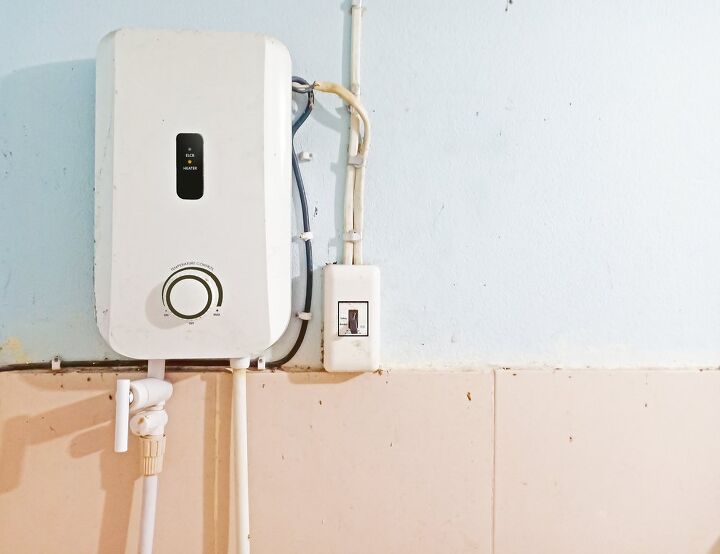






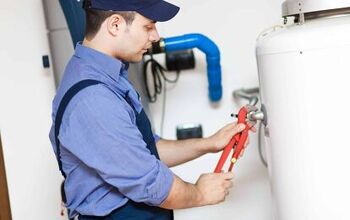

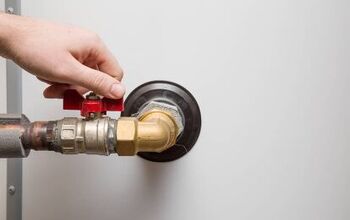
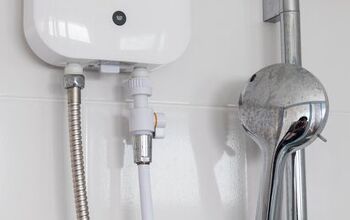
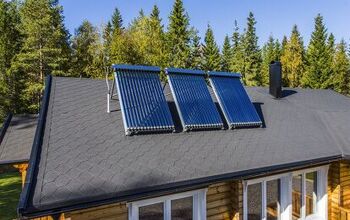


![Standard Dining Room Table Dimensions [for 4, 6, 8, 10 and 12 People]](https://cdn-fastly.upgradedhome.com/media/2023/07/31/9074335/standard-dining-room-table-dimensions-for-4-6-8-10-and-12-people.jpg?size=350x220)






